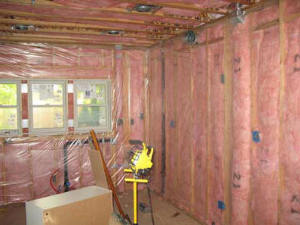Rental WOF needed to address inequality - academic
Leading academic joins chorus of calls for rental property warrant of fitness (WOF).
Monday, November 23rd 2015, 10:30AM
by Miriam Bell

Urgent and robust regulation of New Zealand’s private rental market is needed, according to University of Otago Professor Philippa Howden-Chapman.
In a new publication, Home Truths: Confronting New Zealand’s Housing Crisis, Howden-Chapman said that, in the 2014 General Health Survey, almost half of New Zealanders living in rental housing reported that their houses were damp or mouldy.
There is growing gulf between homeowners enjoying a property boom and renter who cannot afford to purchase their own home, she said.
“But the fundamental qualities of housing – that it be dry, warm and safe – should not be determined by a household’s income.”
The government’s new requirement that landlords should install insulation is illogical, as the insulation requirements are only up to the standards of thirty-five years ago, she said.
“Instead of such lukewarm gestures, what is needed is a strong and standardised rental housing warrant of fitness.”
Both the Labour Party and the Green Party have made a number of attempts to introduce legislation that would enforce a WOF for rental properties into Parliament over the past year.
The Labour Party’s efforts have not succeeded to date, but the Green Party’s Residential Tenancies (Warm, Safe and Secure Rentals) Amendment Bill is still in the Parliamentary ballot.
However, the NZ Property Investors Federation does not believe a WOF for rental properties is the right way to address the problem.
NZPIF executive officer Andrew King said research shows it is too expensive and doesn't target the key goal of warm dry rental properties.
“The harder it is for investors to provide rental property, the more expensive and restrictive it will be for tenants.”
King said that, like the Otago Medical School, the NZPIF believes that giving tenants, who have children with identified health problems, heating vouchers in winter would be a better way of targeting the problem.
Meanwhile, Howden-Chapman, who is the director of the University of Otago’s Housing and Health Research Programme, believes New Zealand has lost its way on housing generally.
Policies which have resulted in a decline in the quality and affordability of New Zealand housing have resulted in a society in which the poor and needy are suffering – in terms of both their physical and mental wellbeing, she said.
“Recent research demonstrates the role of housing in burgeoning levels of inequality – and why an increasingly unequal society is something both rich and poor should care about.”
In her view, the government can no longer afford to pass responsibility for the wellbeing of its citizens onto the market.
It has resulted in sluggish construction rates and a lack of affordable homes, she said.
“There is an urgent need for subsidised, high-quality and well-maintained new housing to meet the undersupply for people on low incomes.”
| « Rents stall around New Zealand | Get smoke alarms, insulation sorted » |
Special Offers
Comments from our readers
No comments yet
Sign In to add your comment
| Printable version | Email to a friend |


